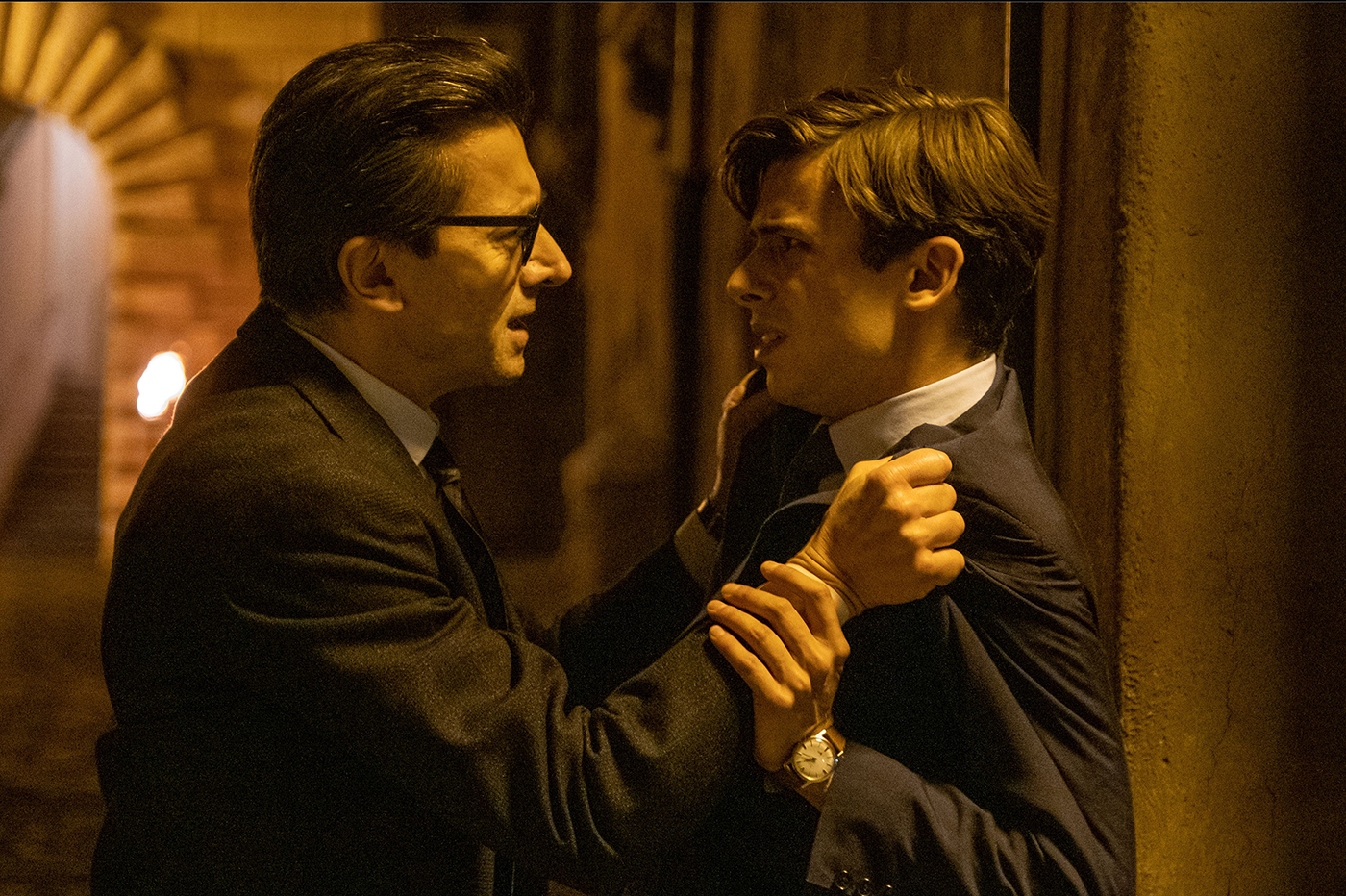CinemAperitivo: Il signore delle formiche [Lord of the Ants] [OmeU ITALIAN with Engl. Subtitles]
I 2022, R: Gianni Amelio mit Luigi Lo Cascio, Elio Germano, Leonardo Maltese, 130 Min, Im Anschluss Aperitivo und Gespräch
ENGL.
The film was nominated for 11 David di Donatello awards.
In the late 1960s, a trial took place in Rome that caused a sensation.
The playwright and poet Aldo Braibanti was sentenced to nine years' imprisonment on charges of plagiarism, i.e. having subjected one of his students and friends, who had recently come of age, to his will, in a physical and psychological sense. The boy, at the behest of his family, was locked up in a psychiatric hospital and subjected to a series of devastating electric shocks so that he would 'recover' from that 'diabolical' influence.
A few years later, the crime of plagiarism was removed from the criminal code. But in reality it had served to indict the 'different' of all kinds, the outlaws of the norm.
Based on real events, the film tells a story with several voices, where, alongside the accused, family and friends, accusers and supporters, and a mostly distracted or indifferent public opinion take shape.
Only one journalist undertakes to reconstruct the truth, facing suspicion and censure.
ITA
Alla fine degli anni 60 si celebrò a Roma un processo che fece scalpore.
Il drammaturgo e poeta Aldo Braibanti fu condannato a nove anni di reclusione con l’accusa di plagio, cioè di aver sottomesso alla sua volontà, in senso fisico e psicologico, un suo studente e amico da poco maggiorenne. Il ragazzo, per volere della famiglia, venne rinchiuso in un ospedale psichiatrico e sottoposto a una serie di devastanti elettroshock, perché “guarisse” da quell’influsso “diabolico”.
Alcuni anni dopo, il reato di plagio venne cancellato dal codice penale. Ma in realtà era servito per mettere sotto accusa i “diversi” di ogni genere, i fuorilegge della norma.
Prendendo spunto da fatti realmente accaduti, il film racconta una storia a più voci, dove, accanto all’imputato, prendono corpo i famigliari e gli amici, gli accusatori e i sostenitori, e un’opinione pubblica per lo più distratta o indifferente.
Solo un giornalista s’impegna a ricostruire la verità, affrontando sospetti e censure.
In den späten 60er-Jahren wird der italienische Dichter und Dramatiker Aldo Braibanti (Luigi Lo Cascio) aufgrund einer Beziehung mit seinem Schüler Ettore (Leonardo Maltese) inhaftiert.
DEU
Der Film wurde für 11 David di Donatello-Preise nominiert.
Ende der 1960er Jahre fand in Rom ein Prozess statt, der für Aufsehen sorgte.
Der Dramatiker und Dichter Aldo Braibanti wurde wegen Plagiats zu neun Jahren Haft verurteilt, weil er einen seiner Schüler und Freunde, der gerade volljährig geworden war, physisch und psychisch seinem Willen unterworfen hatte. Der Junge wurde auf Betreiben seiner Familie in eine psychiatrische Klinik gesperrt und einer Reihe verheerender Elektroschocks unterzogen, damit er sich von diesem "teuflischen" Einfluss "erholt".
Einige Jahre später wurde das Verbrechen des Plagiats aus dem Strafgesetzbuch gestrichen. Doch in Wirklichkeit diente es dazu, ausgerechnet die "Andersartigen", die Geächteten der Norm, anzuklagen.
Der Film basiert auf wahren Begebenheiten und erzählt eine mehrstimmige Geschichte, in der neben den Angeklagten auch Familienangehörige und Freunde, Ankläger und Unterstützer sowie eine meist abgelenkte oder gleichgültige öffentliche Meinung zu Wort kommen.
Nur ein einziger Journalist unternimmt es, die Wahrheit zu rekonstruieren, und sieht sich dabei Verdächtigungen und Zensur ausgesetzt.
